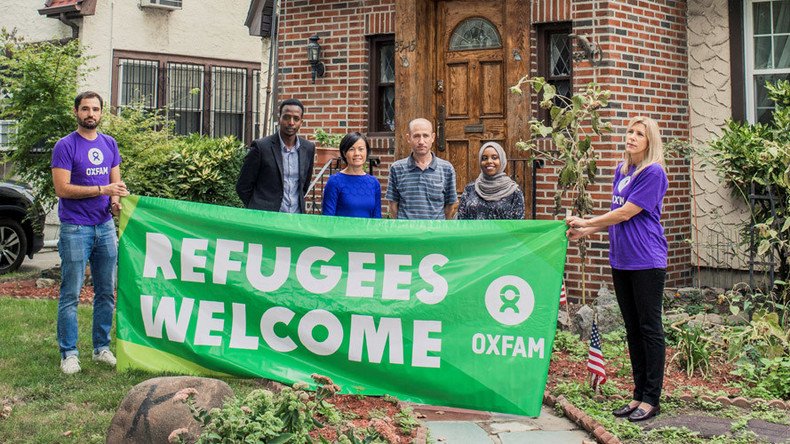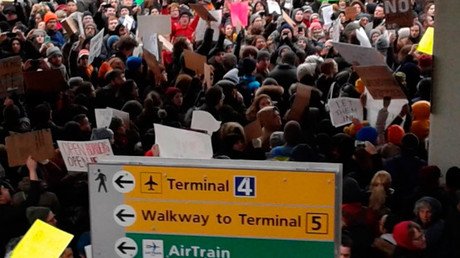Charity rents out Trump’s childhood home to refugees in publicity stunt

The international charity Oxfam rented out President Trump’s childhood home in Queens, New York, letting four refugees stay for a weekend. The publicity stunt comes as the Trump administration’s temporary travel and refugee bans are about to expire.
The action was intended to put pressure on Trump, and other world leaders attending the UN General Assembly in New York City this week to admit more refugees, the charity said.
“Oxfam hosted refugees at President Trump’s childhood home to declare that all people, refugees included, have the right to a safe place to call home,” Shannon Scribner, the organization’s acting director for humanitarian programs, said in a press release.
The charity rented the house through Airbnb for the cost of $725 per night, and made it available to refugees from Somalia, Syria and Vietnam who were resettled in the US.
A video released by Oxfam shows the house filled with Trump memorabilia, including photos and figurines. The Trumps had moved out of the house when the future president was 4.
“To me the American dream is having a safe and stable home, and being able to accomplish your goals and having those opportunities,” Eiman, a Somali refugee settled in North Carolina, says in the video. “And now it’s starting to feel threatened.”
Oxfam’s publicity stunt comes as the temporary travel ban on residents of six mainly Muslim countries - including Syria and Somalia - and refugees is set to expire on Sunday.
Although several federal courts have sought to stay the ban, the US Supreme Court allowed it to partially enter into effect until the nine justices can make an official ruling in the case.
The Trump administration has said the ban is critical to national security.
The Department of Homeland Security has completed a preliminary review of security procedures for travelers and refugees, and is expected to announce them on Friday.
Last week, Trump indicated his desire to implement an even stricter ban, following a bomb explosion in London’s subway system on September 15.
“The travel ban into the United States should be far larger, tougher and more specific – but stupidly, that would not be politically correct!” Trump wrote on Twitter.
As part of his speech before the UN General Assembly on Tuesday, Trump called for the US to approach refugee resettlement in a way that would allow refugees to return to their home countries and rebuild their lives.
“For the cost of resettling one refugee in the United States, we can assist more than 10 in their home region,” the US president said.
As President of the United States of America, I will ALWAYS put #AmericaFirst🇺🇸#UNGA
— Donald J. Trump (@realDonaldTrump) September 19, 2017
Full remarks: https://t.co/ksaMsQ2Lhmpic.twitter.com/XrtpAWwuCn
In his original executive order, issued a week after he took office in January, Trump barred people from Iraq, Iran, Syria, Yemen, Libya, Sudan and Somalia from entering the US for 90 days, halted refugee resettlement for 120 days, and indefinitely suspended the resettlement of Syrian refugees. The policy sparked nationwide protests.
Bowing to pushback from the courts, Trump issued a new order in March that modified the ban and dropped Iraq from the exclusion list.
In July, the United States hit the cap set by the White House of 50,000 refugees allowed into the country for the fiscal year 2017. That figure is 41 percent lower than the 85,000 cap set during Barack Obama's final year in office.













